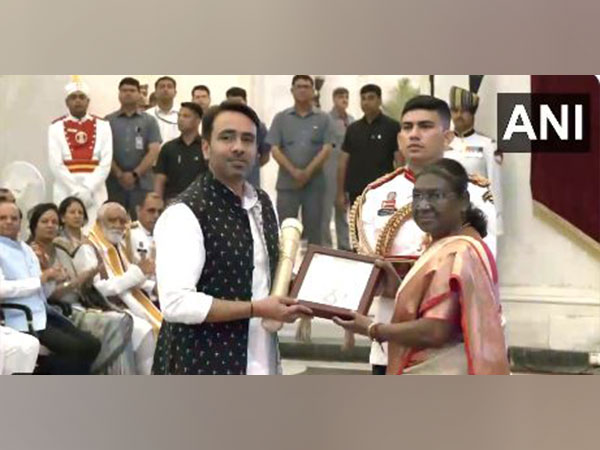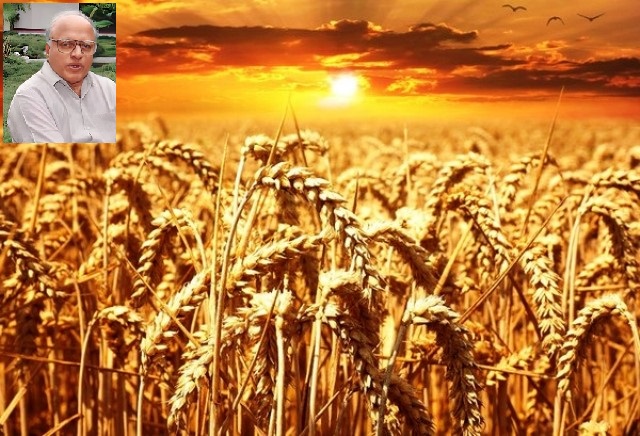President Droupadi Murmu on Saturday conferred Bharat Ratna on four eminent personalities, including two former Prime Ministers, Chaudhary Charan Singh and PV Narasimha Rao. Former Bihar Chief Minister Karpoori Thakur and agronomist MS Swaminathan were also conferred with the country’s highest civilian award.
The central government announced five names for the Bharat Ratna this year, which also included BJP leader LK Advani.
Sources said that President Murmu will pay a visit to senior BJP leader LK Advani’s residence and confer him with the prestigious award. This was decided in view of the ailing health of the veteran BJP leader Advani, they added.
Former PM Charan Singh’s award was received by his grandson, Jayant Singh, and PV Narasimha Rao’s award was received by his son, PV Prabhakar Rao.
MS Swaminathan’s daughter, Nitya Rao, received the award for her father and Karpoori Thakur’s award was received by his son, Ram Nath Thakur.
Prime Minister Narendra Modi, Home Minister Amit Shah, BJP National President JP Nadda, Congress leader and LoP Mallikarjun Kharge were present among other leaders on the occasion.
Born on June 28, 1921, in Karimnagar, Telangana, being an agriculturist and an advocate, Narsimha Rao joined politics and held some important portfolios. He was the Minister of Law and Information, 1962-64; Law and Endowments, 1964-67; Health and Medicine, 1967 and Education, 1968-71, Government of Andhra Pradesh. He was the Chief Minister of Andhra Pradesh from 1971-73 and General Secretary of the All India Congress Committee from 1975-76.
Trained as a plant geneticist, Swaminathan’s significant contributions to India’s agricultural sector have earned him a reputation as the scientific leader of India’s green revolution movement. His work has been instrumental in the agricultural renaissance of India.
Born in Karachi, in present-day Pakistan, on November 8, 1927, Advani has served as the President of the Bharatiya Janata Party for the longest period since its inception in 1980. Capping a parliamentary career of nearly three decades, he was, first, the Home Minister and, later, the Deputy Prime Minister in the cabinet of Shri Atal Bihari Vajpayee (1999-2004).
Karpoori Thakur was born in 1924 in one of the most backward sections of society, the Nai Samaj. He was a remarkable leader whose political journey was marked by his unwavering commitment to the marginalised sections of society. He served as the Chief Minister of Bihar and was a key figure in the struggle against social discrimination and inequality. His commitment to affirmative action gave representation and opportunities to the poor, oppressed, exploited and deprived sections of the country.
Chaudhary Charan Singh was born in 1902 at Noorpur in Meerut district of Uttar Pradesh, in a middle class peasant family. He shifted to Meerut in 1929 and later joined the Congress. He was first elected to the UP Legislative Assembly in 1937 from Chhaprauli and represented the constituency in 1946, 1952, 1962 and 1967. He became Parliamentary Secretary in Pandit Govind Ballabh Pant’s Government in 1946 and worked in various departments such as Revenue, Medical and Public Health, Justice, Information etc.
In June 1951, he was appointed Cabinet Minister in the State and given charge of the Departments of Justice and Information. Later, he took over as the Minister for Revenue and Agriculture in the Cabinet of Sampurnanand in 1952. When he resigned in April 1959, he was holding charge of the Department of Revenue and Transport. (ANI)
For more details visit us: https://lokmarg.com/


